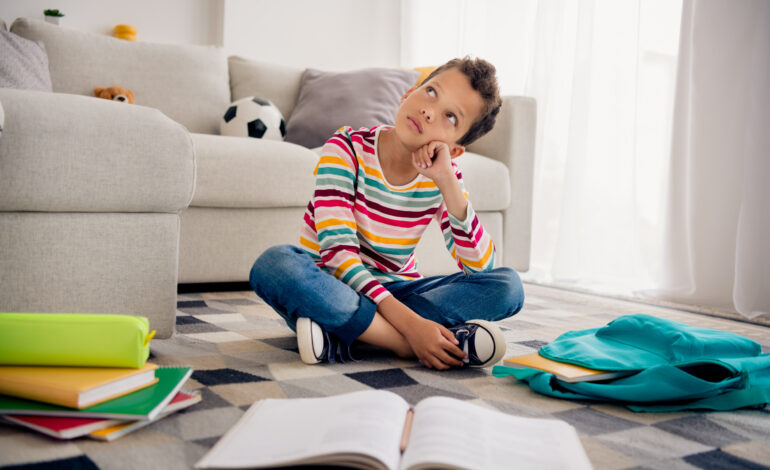Let Kids Embrace Boredom: Experts Say It Fuels Development

Parents often dread hearing their children exclaim, “I’m bored!” after a day filled with organized activities. Despite the best efforts to keep kids entertained, experts argue that embracing boredom can be one of the most beneficial gifts for child development. According to play expert Cas Holman, boredom encourages children to engage with their surroundings, fostering creativity and intrinsic motivation.
Holman, author of “Playful: How Play Shifts Our Thinking, Inspires Connection, and Sparks Creativity,” emphasizes that overscheduling children’s lives can hinder their ability to make choices. “When their attention is overstimulated, they are out of touch with their intrinsic motivation—the inner drive that moves them toward personal interests,” she explained in an interview with Newsweek. Instead of relying on screens or structured activities, children need unstructured time to explore their interests.
Boredom prompts children to engage in generative play, where they create their own activities. Holman suggests that this freedom allows them to discover new worlds and interests. For instance, a child might pick up a rock out of curiosity or start reading a book because its cover caught their eye. Such activities not only enhance creativity but also support emotional development.
Dr. Kyle W Boerke, a clinical child psychologist at OSF HealthCare, supports Holman’s views, noting that unstructured play can lead to essential social skills. For example, if a child decides to visit a neighbor to play, they develop problem-solving skills and confidence by initiating social interactions. “There’s a whole extra level of benefit that comes from mustering up the courage to ring the doorbell and ask if they want to play,” he said.
In contrast, screen-based activities often result in passive engagement, providing little developmental benefit. Holman warns that relying on screens can lead to a disconnection from the environment. “It’s a misconception that giving them a screen is easier,” she stated. “They are tuning out rather than in.”
Many parents express guilt over allowing their children to experience boredom, believing it is their responsibility to keep them entertained. Holman highlights two key assumptions that need to change. First, children do not require constant direction on how to spend their free time. Second, productivity should not solely be defined by structured activities leading to high performance. “Kids should do what they love, whether or not they excel at that thing,” she noted. “They need to play for play’s sake.”
The benefits of allowing children to experience boredom extend well beyond childhood. Holman reflects on her years teaching design students at the Rhode Island School of Design (RISD), where she observed that those who embraced boredom often achieved innovative results. “They lingered in unknowns comfortably,” she explained. “Instead of worrying about grades, they pursued what they were curious about.”
To help parents introduce “good boredom” into their children’s lives, Dr. Boerke recommends starting with “technology time-outs” for families. “Set scheduled times when no phones, gaming, or television are allowed,” he suggested. “When we unplug, you’ll start to see their creativity come out.”
Holman encourages playful approaches to daily routines. She proposes that even household chores can become opportunities for discovery. “If boredom is replaced by chores, involve kids in the process,” she advised. Simple tasks like cooking dinner or tidying up can be made enjoyable. “Let it take longer, let the pasta be a little overcooked, and the socks get folded wrong,” she added. “In the process, children will likely find something else to do and follow their noses into not being bored.”
In summary, allowing children to experience boredom can enhance their creativity, problem-solving abilities, and social skills. By shifting the focus from constant entertainment to fostering independent play, parents can provide their children with valuable opportunities for growth and exploration.






